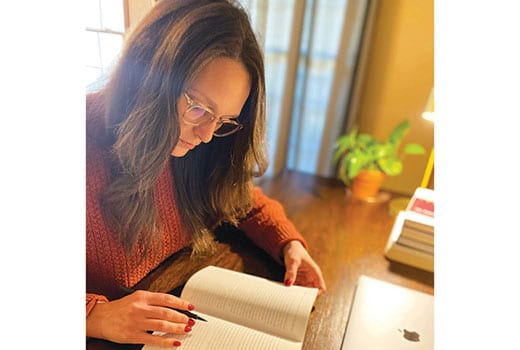There had been existing policies at Megan Nauman’s church to prevent sexual abuse, but the Caring Well Challenge helped identify a predator in their midst, she said.
For a long time, the standards at Hunter First Baptist Church in Elizabethton, Tenn., reflected those of the vast majority of churches. Volunteers were mandated to be reporters of abuse, but little beyond that. At one point in First Baptist’s past, background checks were required, but not when Nauman reviewed the policies for herself.
As children’s director, she joined other church leaders to elevate abuse prevention in their mission. In October 2019, Nauman and her husband, Steven, First Baptist’s pastor, attended the Caring Well Initiative conference in Dallas hosted by the Ethics & Religious Liberty Commission.
The testimonies heard and materials received spurred Hunter First Baptist to become proactive in protecting the vulnerable. And that’s just what happened when those changes helped identify a predator before any acts of abuse could occur.
The actions of a visitor caused some red flags to go up among children’s ministry leaders, Nauman said. Those actions include continually asking to pick up children and going into secure areas before passing the mandated Caring Well training.
Steps were taken to cut off access to children, and eventually he was asked by leadership to cease visiting altogether.
Later, an investigator contacted the church to let them know the suspect had been arrested on abuse charges prior to his visiting Hunter First Baptist.
“The church is a place where we want to trust people,” Nauman said. “He was trying to take advantage of that.”
Since the launch of the Caring Well Challenge in August 2019, momentum has grown for the 12-month, eight-step process of “listening, learning, assessing and launching needed initiatives” to make churches safer against sexual abuse. In that time, more than 1,000 churches have participated, and more than 4,100 churches assigned it to staff and volunteers through Lifeway’s Ministry Grid.
A church’s involvement will help them become more proactive in identifying and addressing issues related to sexual abuse, said ERLC Acting President Brent Leatherwood.
“The church should be known as a place that epitomizes the
term ‘caring well,’ and that’s exactly why the ERLC launched this initiative. We have sought to partner with, inform and serve our churches in an effort to ensure they can effectively minister to the survivor community and prevent abuse from occurring in their congregation,” Leatherwood said.
“We were mightily encouraged by the number of partnerships we saw with churches across the SBC during the initial launch phase, and our hope is that many more churches will take the Caring Well Challenge in the coming year. We must continue confronting the abuse crisis, and, in doing so, make our churches safe from abuse and safe for survivors.”
SBC Executive Committee Chairman Rolland Slade agreed, calling the Caring Well materials “a vital part of being a loving church.”
“It is critical that churches stay focused on being safe places within communities,” he said. “We must be diligent in staying up-to-date and informed. The Caring Well Challenge is not a one-time training; it must be an ongoing process in every congregation, every association and every state convention.”
In considering steps toward addressing sexual abuse, EC Vice President for Communications Jonathan Howe urged churches to consider the likelihood of survivors in their congregation.
“According to the CDC, one in four women and one in six men are sexually abused before they turn 18,” he said. “Regardless of the size of the church you pastor or attend, there are survivors of abuse in your congregation — and the potential still exists for abuse in your local church.
“That’s why it’s important for our churches to be churches who care well.”
Addressing sexual abuse and the potential for it also becomes a gospel issue, he said.
“Proverbs tells us to speak up for those who have no voice, and to seek justice for those on the verge of destruction,” Howe said. “By becoming a church that cares well, your church can do just that.”
— Scott Barkley is national correspondent for Baptist Press.
